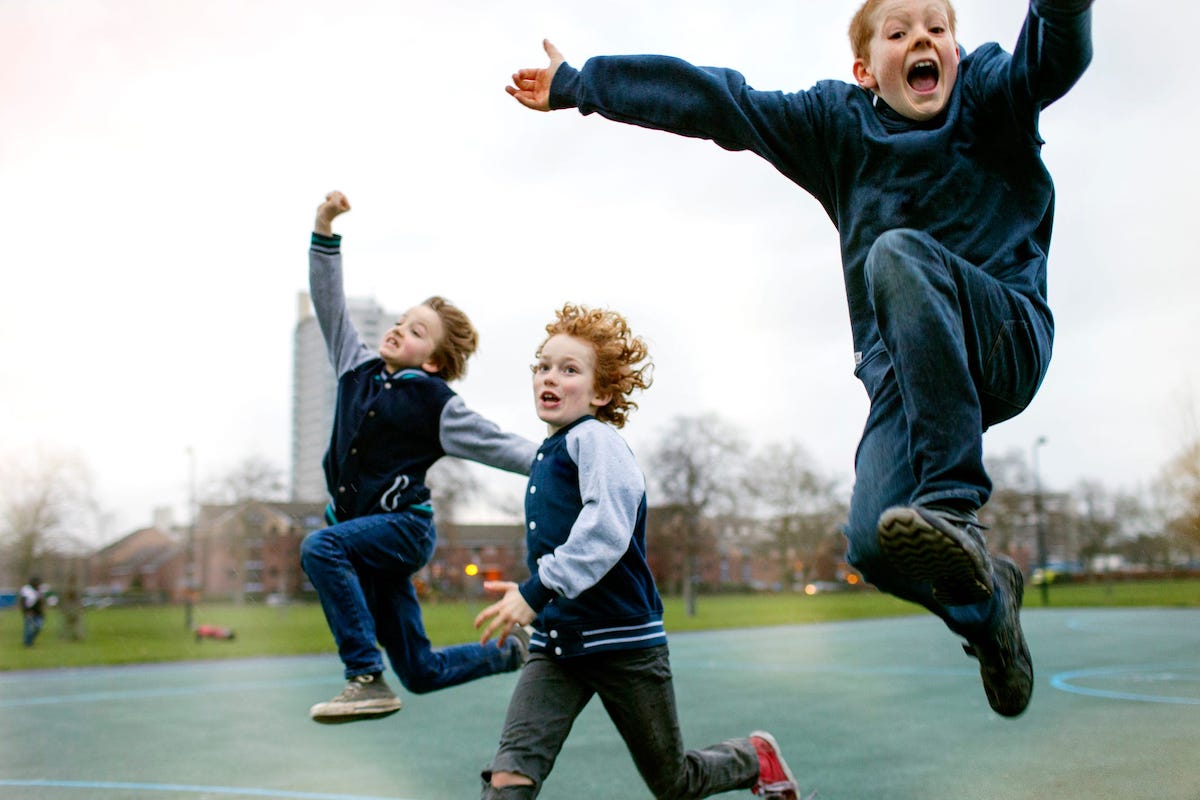I did an interview the other day with someone with a very different family situation from mine, a very different parenting style, a quite different set of values. But when I asked him at the end of the interview about the hardest thing in parenting, he said it was parenting his adolescent children in puberty. I could not have agreed more; adolescent parenting is special and rewarding and fun, but it is not for the faint of heart.
In my view, there are a bunch of things that make this phase of parenting challenging. One is that it creeps up on you. The ages of, say, 7 to 10 are often quite calm. Sure, your kids scream for stuff they want and act crazy sometimes, but they can also be easy to please and emotionally stable. Then, adolescence — suddenly, people are screaming and crying and you do not know why.
A second issue is that the stakes feel high. Many more ways to mess up, and the mess-ups seem possibly far-reaching. Third, closely related, our kids are out of our control a lot of the time. This is the first step of the agonizing letting go — we have to somehow trust them, out in a world that we definitely do not trust. How can I make sure my kid makes good choices? How can I make sure that the world will treat them right?
People sometimes ask if I am planning a book about teenagers, and the answer is … no. But I think about parenting in this phase all the time, and there are a number of resources and ideas I have found helpful. Here, I want to talk about four things I have found useful, in case they are also useful to you. Or you can file them away for a time that they might be.
Many of these have some data behind them, though it is largely more indirect — theory and evidence from psychology that tells us how people process things. We do not have large-scale randomized trials that show us the right way to parent our adolescents. Even if we did, kids are so different that I doubt the results would help. We need general tools, not specific ones.
Here are four.
Prepare and pivot
A hallmark of parenting in adolescence is that things come up that you did not expect: conversations, questions, issues. It is easy to feel unprepared and to react in a way different from the way you hoped you would react. The tool here — and I credit Cara Natterson and Vanessa Kroll Bennett and their excellent book This Is So Awkward — is a two-parter.
First, try to be prepared if possible. Which means, in advance of your child’s puberty, try to read a book or two. Vanessa and Cara’s book is great as a starting point, and there are others. It’s worth spending time getting a sense of the landscape and how it might have changed since you were a kid. So when your kid asks you, “What is anal sex?” your reaction is not “Where did you hear that? Never say it again!,” which is unproductive.
Second, have a plan for when you’re not prepared — basically, a script that buys you time. As a parent, I like to have answers. But you also get points by saying you need a moment. “I’m so glad you asked me that question. I’m going to need a little bit of time to come back to you with a good answer. Can we plan to talk about this [at specific time]?” And then go figure out what to say.
Cara and Vanessa have a corollary to this, which is to point out that if you mess up on the first try, you can ask for a do-over. “Hey, when you asked me about anal sex before, I didn’t give you a great response, because I wasn’t ready for the question, and I’m sorry. I’d love to talk about it again now.” (Would you love to? No. Will you do it? Yes. Because that’s parenting.)

Mattering
Last fall, I did a podcast episode with Jennifer Wallace about her book Never Enough. The book is great in general, but the piece that resonated most was the discussion of the idea of mattering. This is an old concept in psychology. A 1981 paper used survey data on juniors and seniors in high school and argued that whether children thought they “mattered” to their parents strongly influenced their self-esteem, mental health, and behavior. This type of correlational evidence is hard to draw causal conclusions from, but there is a large following for psychological literature on this idea.
What does mattering mean? Basically, it’s the idea that you’re an important part of whatever the unit is that we’re thinking about — in this case, the family. It’s the feeling of being valued and being needed. In that initial paper, mattering was important independent of whether children thought their parents viewed them positively or negatively.
The implementable idea here is that there is value to telling (or showing) our kids how their contributions are valuable. It can sometimes be as simple as involving them in family meetings and group decisions or just telling them, “Hey, you’re really important to this family. Thanks for being part of it.” That may sound weird, and your kid may look at you like you’re an alien and go back to their phone. But … they might not. It worked for me, so it’s worth a try.
Be outside the room
Adolescents do not want to talk to you — until they do. You need to be there when they are ready, which often is on their timeline and not yours.
The little-kid version of this is when your 6-year-old waits until bedtime to start in with their long story about how someone stole their lunch and then Sofia put pasta sauce in Noel’s hair and Noel cried and… This often appears to be something of a delay tactic.
Older kids do this too, but for different reasons. Whether it’s hormones or discomfort or needing to work themselves up to being able to bring something to you, they take time. When things come up, it’s not necessarily at bedtime, but maybe it’s not necessarily at a time that is ideal to talk. And without suggesting one always drop everything to talk to a teenager on their timeline, there is something to be said for doing your best to make time when they are ready.
The inimitable Dr. Becky has what I think is an excellent take on this, from which I’ve pulled the title of this section. She talks about a case in her practice with a teenager having a lot of conflict with her parents, which often ended with a slammed door and her parents then leaving. What the kid said is, basically, “When I was ready, I opened the door and … they weren’t there.” So — within reason, try to be outside the room (metaphorically and, sometimes, literally).
Home as the safe space
When we think about what our kids are facing out in the world, one thing that comes to mind for many parents is bullying. Whether it’s in person, on the class group chat, or in some other mode, bullying happens, and it can be devastating. One of the many, many frustrations of seeing this from the other side is that it’s tempting to want to shake your child and tell them, This doesn’t matter! It gets better!
Of course, when you are 13, it does matter, so there is not much point in giving a speech about how when you’re 45 you’ll never remember those people’s names. (Besides which, that’s not true and you probably do remember those people’s names, even if you’ve mostly gotten over it.)
What you can do is be a source of support and love. My favorite research related to this is about resilience to bullying. The researchers look at a sample of kids who are all being bullied, so it’s not about how to keep your kid from being in this group. They ask which kids are struggling as a result, and they find that those who have some consistent support — a single close friend, a sibling, other family — are less likely to be negatively affected.
This can be you: you can be the safe place that generates the resilience they need to go out into the world. You can’t control the world, but you can control your corner of it.
Final thought
When I think about these touchpoints, something that is very clear is that many of them take time. This has been maybe the most surprising thing for me about parenting older kids. When I was pregnant, I figured that my children would take the most time as infants and then it would gradually decline. In a sense, this was true — the physical demands of early parenting are much more numerous than in parenting older kids. With older kids, though, time still feels enormously important, and it feels much less easy to substitute my time for someone else’s. In the language of the second point above, I feel like I matter a lot more than I did when they were 2 or 3.
The upside to this time and work, though, is that the rewards can be immense. Succeeding with an adolescent is like nothing else in parenting, in my experience. In the rare moments you get it just right, you feel like some kind of dragon tamer or wizard and that it’s all worth it. As it almost always is.
Community Guidelines



















Log in